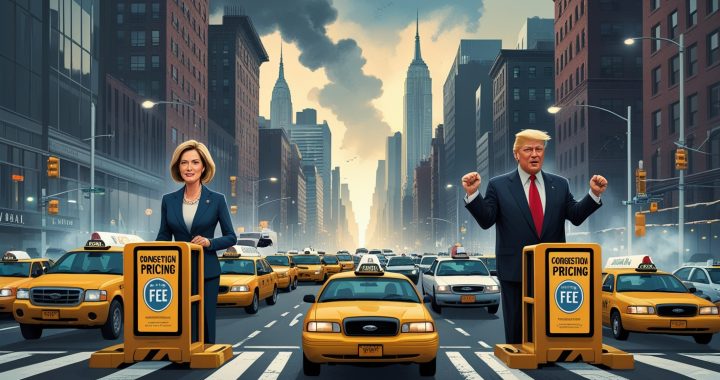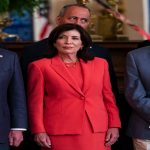The implementation of the congestion pricing toll system for drivers entering the center of Manhattan has sparked a fierce battle between two major political figures: President Donald Trump and New York Governor Kathy Hochul.
This conflict resembles a wrestling match between two opposing sides: one favoring order and sustainable urban planning, and the other driven by populist rhetoric. It is essential to analyze this situation beyond political affiliations and focus on what truly benefits New York City.
The Purpose of Congestion Pricing
The congestion pricing toll, designed to reduce environmental pollution and alleviate traffic congestion in New York City, also aims to generate revenue for much-needed improvements to the city’s deteriorating public transportation infrastructure.
However, President Trump and his administration argue that such a toll would disadvantage the city compared to other regions, leading businesses to relocate to states with fewer restrictions.
The Political Clash
Trump’s administration withdrew federal approval for New York’s congestion pricing program, claiming that it disproportionately impacts middle-class workers and does not effectively support road infrastructure. This decision was met with polarized reactions. New Jersey Governor Phil Murphy praised it as a win for drivers, while others condemned it as a political maneuver to undermine New York’s ability to manage its own affairs.
Trump’s populist approach was evident in his statement on Truth Social, where he declared, “Congestion Pricing is DEAD! Manhattan and all of New York are SAVED. LONG LIVE THE KING!”—a theatrical move that further fueled the debate.
Hochul’s Response
In response, Governor Hochul traveled to Washington, D.C., for an official meeting with Trump in the Oval Office. Their discussion covered a range of topics, including immigration, infrastructure, economic development, and renewable energy. During the meeting, Hochul presented Trump with a booklet showcasing the early successes of congestion pricing in reducing traffic and emissions.
The Federal Funding Dilemma
One of the most pressing concerns for New York’s Metropolitan Transportation Authority (MTA) is the potential loss of federal funding due to the Trump administration’s decision. Federal funds are crucial for maintaining and expanding public transportation systems across the country, and withholding them from New York could set a dangerous precedent.
Kate Slevin, Executive Vice President of the Regional Plan Association, emphasized that “all state transportation agencies rely on federal funds,” with only a few exceptions. If the federal government continues to use funding as leverage against state policies, other states might face similar challenges in the future.
The Future of Congestion Pricing
Despite political interference, congestion pricing remains active in New York City. However, public opinion remains divided on whether the program should continue. While some see it as a necessary step towards a more sustainable and efficient city, others believe it imposes an unfair burden on middle-class drivers.
Ultimately, the decision should be based on data and long-term benefits rather than short-term political gains. New Yorkers, who experience the city’s transportation challenges firsthand, should have the final say in shaping policies that directly affect their daily lives. The federal government should respect the autonomy of states in managing their urban planning initiatives without unnecessary intervention.






